MEET THE MIT BILINGUALS
Salute to Bilingual Students | Class of 2021
Profiles of 31 of the outstanding MIT 2021 graduates who focused deeply on both humanistic + sci/tech fields reflect on their MIT education — and their visions for the future.
Click on a student's name for a full profile.
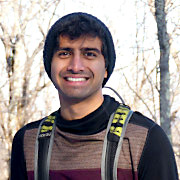 |
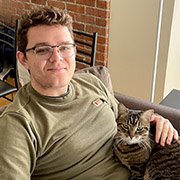 |
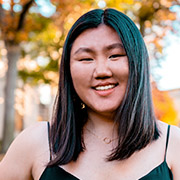 |
|
Ashay Athalye
|
Jack-William Barotta |
Fiona Chen |
 |
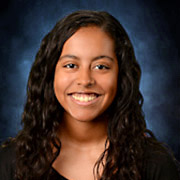 |
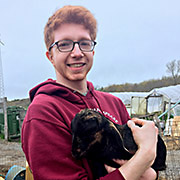 |
|
Majors: Physics + Theater Arts |
Major: Environmental Engineering |
Majors: Materials Science & Engineering |
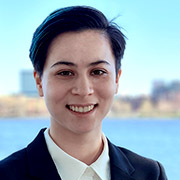 |
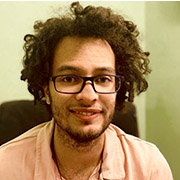 |
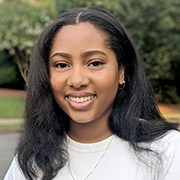 |
|
Majors: Physics + Theater Arts
|
Major: EECS |
Major: Chemical Engineering
|
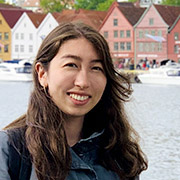 |
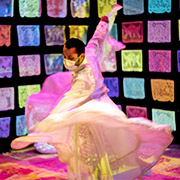 |
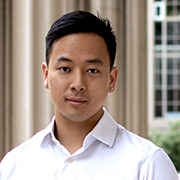 |
|
Majors: MechE + Music |
Majors: Architecture + Theater |
Majors: Aerospace Eng + EECS |
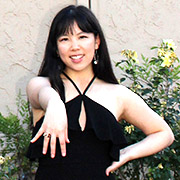 |
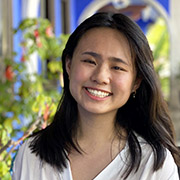 |
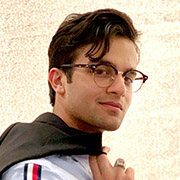 |
|
Majors: Biology + French
|
Majors: Economics + Math |
Faraz Masroor |
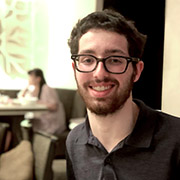 |
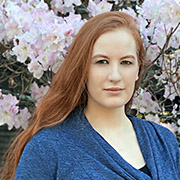 |
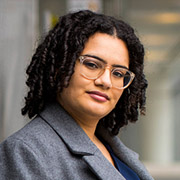 |
|
Majors: CS + Physics |
Major: Nuclear Engineering |
Zaina Moussa
|
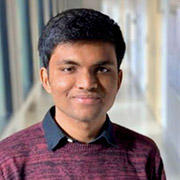 |
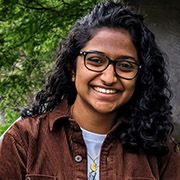 |
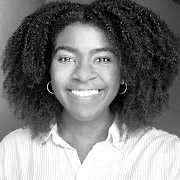 |
|
Major: Chemical Biology |
Majors: Math + Physics |
Major: Chemical-Biomedical Engineering |
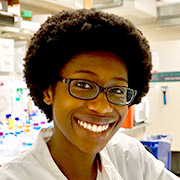 |
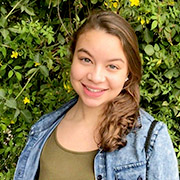 |
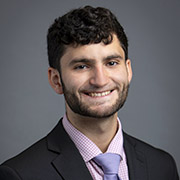 |
|
Major: BioEngineering |
Majors: Math + Music |
Tony Terrasa |
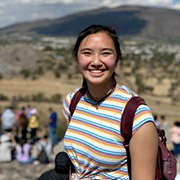 |
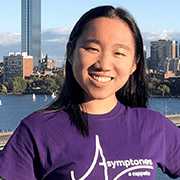 |
 |
|
Major: EECS
|
Julia Wang |
Major: Biology |
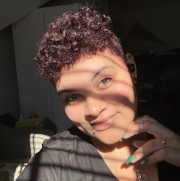 |
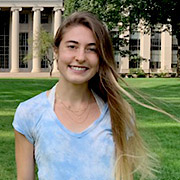 |
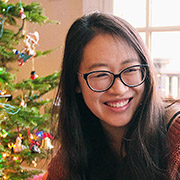 |
|
Major: Literature |
Major: BioEngineering |
Majors: EECS + Music |
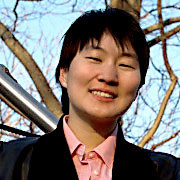 |
 |
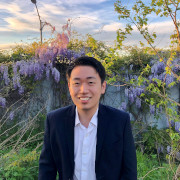 |
|
Majors: CS + Math |
Margaret Y. Zhang |
Alvin Zhu |
"Dual competence is a good model for undergraduates at MIT: master two fundamental ways of thinking about the world, one technical and one humanistic or social."
— Professor David Mindell, Historian, Engineer, Co-founder and CEO of Humatics Corporation
Full Profiles | Salute to Seniors 2021
 |
"Economics has endowed me with a new way of thinking. Together, EECS and Economics give me an incredibly comprehensive toolkit with which to approach problems." |
Ashay Athalye '21
Majors: Economics + EECS
Minor: MechE
A Focus: MIT's Conservatory-level music program
Hometown: Shrewsbury, Massachusetts
Vision: M.Eng. at MIT; entrepreneurship; career roles involving both research and real-world implementation
What have you most enjoyed about studying economics?
Economics has definitely endowed me with a new way of thinking. Especially after taking courses such as 14.13 (behavioral economics) and 14.123 (decision theory), I now think very explicitly about how much utility (positive value) things give me and what framework I’m consistently using to make decisions. I think being hyperaware of this has really helped me reflect on, understand, and improve the process by which I make decisions and choices, which in turn has made me more happy.
For example, over the past year, I’ve reflected on my risk-tolerance model and adjusted some of my behavior (e.g. risks and behavior related to social distancing during covid-19, investing, winter hiking, and driving at night) to be consistent with this model. Being very mindful of my decision making model has also given me confidence and a sense of peace regarding my decisions. Overall, the insight economics gives about incentives and strategic interaction has led me to change a lot of my behaviors.
Modeling also comes to mind as a useful skill that economics has taught me. My biggest takeaway from classes such as 14.18 (mathematical economic modeling) and 14.661 (labor economics) has been that designing a good model is more about what you leave out of the model than what you put into it.
How does this knowledge from economics combine with your other studies at MIT?
Together EECS and Economics give me an incredibly comprehensive toolkit with which to approach problems. For example, in the last few months I’ve been thinking a lot about mixed autonomy (settings that involve both self-driving cars and human drivers) through my course project in 6.884 (Computational Sensorimotor Learning). In my reading, I’ve come across many big questions about how self-driving cars might be deployed in the coming decade and what the consequences of that might be, particularly with regard to congestion.
Through my training in EECS, I’m able to formulate this as a reinforcement learning (RL) problem and implement RL algorithms to find optimal control policies for the self-driving cars that will act to reduce congestion. And through my training in economics, anticipating a possible increase in congestion due to more easily available, time-saving transportation, I’m able to formulate models and propose concrete methodologies (such as randomized control trials) to study the response people will have to various levels of access to and prices for self-driving car taxi services.
It’s incredibly empowering and useful to be able to approach a problem that’s inherently a multi-faceted, complex system from multiple angles.
A more concrete way these fields have combined is at the intersection of machine learning, inference, and econometrics. Among other things, this has become very relevant in empirical economic problems encountered in the tech industry. I’ve been interested in this and I took 14.388 (inference on causal and structural parameters using AI/ML), a new class, on this topic this semester.
An MIT education includes study in the technical, humanistic, and scientific fields. How do you think that range of knowledge will be valuable for your career — and life?
Having interests in and an appreciation for all these things certainly gives you a lot of happiness, and there have been so many unique ways MIT has supported my education in these areas, from UROPs to MISTI to the Emerson music program. In terms of my career, I want to be able to study things rigorously and build things quickly. For that, an education grounded in both science and the humanities is crucial.
What are your plans for the future?
Over summer, I’ll be interning on the machine learning team at Waymo, and this fall, I’ll begin my M.Eng. in artificial intelligence here at MIT. After my M.Eng. I plan to work for a bit in industry and then pursue entrepreneurship. I also want to keep open the possibility of graduate study, although I don’t know where exactly I’d fit that in among the other things I want to do. More broadly, I want to be in a role that involves both research and implementation.
 |
"Economics gave me a space to try and create, test, and explore mathematically modeling a system." |
Jack-William Barotta
Major: Mathematics
Minor: Economics
Vision: PhD in Fluids & Thermal Sciences at Brown; Research in surface tension-drive phenomena
What have you most enjoyed about studying economics?
I enjoyed taking 14.06 in Spring 2019, where I gained an appreciation for testing the validity of idealized models. I enjoyed exploring how models for the macro-economy change over time and being able to reproduce major discoveries in economic theory through the problem sets.
How does this knowledge from economics combine with your other studies at MIT?
Given my interest in applied mathematics, I think economics gave me a space to try and create, test, and explore mathematical modeling a system.
An MIT education includes study in the technical, humanistic, and scientific fields. How do you think that range of knowledge will be valuable for your career — and life?
My experience with economics allowed for me to give real-world examples in my teaching jobs in the math department in classes like multivariable calculus and differential equations.
What are your plans for the future?
I will be pursuing a PhD in Fluids and Thermal Sciences at Brown University, where I hope to conduct research in surface tension-drive phenomena.
 |
“My MIT HASS classes — not only in economics, but also in history and political science — have been invaluable for gaining the context to understand society’s most pressing issues, such as climate change, or racial and economic inequality.” |
Fiona Chen '21
Majors: Economics + Math
Hometown: Alameda, CA
Vision: Research and policy work on economic inequality and poverty
Also see: Feature story at MIT News
What have you most enjoyed about studying economics?
I really appreciate that my classes and research work in the economics department have provided me the skills to understand social issues with greater rigor and precision. 14.32 Econometrics was particularly transformative for me, because it provided me exposure to the technical tools that economists use and demonstrated really fascinating applications of these tools to important questions in the fields of education, healthcare, and more. I also loved 14.33 Research and Communication in Economics, because it was my first opportunity to produce my own research, and I was able to spend the semester thinking about the factors that determine health insurance coverage -- a topic that I care a lot about.
How does the knowledge from this field combine with your other major or minor studies at MIT?
I’m also a math major, and I feel that my two majors are very complementary. I often see concepts I have learned in my probability, statistics, and analysis classes applied in economics classes and research.
An MIT education includes study in the scientific, technical, social science, arts, and humanities fields. How do you think that wide range of knowledge and perspectives will be valuable to you?
I think it will be incredibly valuable. Having a wide range of knowledge is essential to doing work that can help address society’s most pressing issues, such as climate change or racial and economic inequality. My MIT HASS classes — not only in economics, but also in other fields, such as history and political science — have been invaluable for gaining the context necessary to understand many of these issues. At the same time, I’ve loved being able to research and study these issues through a technical lens.
What are your plans for the future?
I will be pursuing a Ph.D. in Economics at Harvard starting this Fall. Long-term, I hope to do research and policy work on economic inequality and poverty.
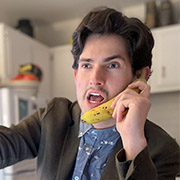 |
"The beauty of storytelling is that meaning can exist on multiple levels, with multiple correct interpretations of one piece, similar — metaphorically speaking — to how particles in quantum can exist in multiple states or orientations until measured." |
Aidan Driscoll
Majors: Physics + Theater Arts
Hometown: Philadephia, PA
Vision: MFA at USC in Film & Television Production; storytelling in the film world
What have you most enjoyed about studying theater arts?
I really enjoyed the theater community at MIT. There's a super intimate group of faculty and students that make collaborations, workshops, and shows a really fun experience. I loved the between-the-work-moments of things like Musical Theater Guild or Acting with the Camera, or the discussions we'd have in Playwrights Workshop. All this enthusiasm and friendship would bleed into our work for the better
How does the knowledge from this field combine with your other studies at MIT?
I was recently talking with a friend about how artistry can exist in the process of work and creation, whether that's in the lab or on the stage, based on how each of us personally find meaning in our work. I also think some of the more philosophical ideas that stem from quantum and relativistic physics are applicable to art.
I think the beauty of storytelling is that meaning can exist on multiple levels, with multiple correct interpretations of one piece, similar — metaphorically speaking — to how particles in quantum can exist in multiple states or orientations until measured. There's also some stuff physics implies concerning the philosophies of free will versus determinism, or the universe existing in chaos versus there being an underlying structure to everything, that has certainly influenced my writing.
An MIT education includes study in the technical, humanistic, and scientific fields. How do you think that range of knowledge will be valuable for your career — and life?
Considering I want to continue writing and telling stories, particularly in film, having a breadth of knowledge and interests is essential. To write stories I need something to draw from and something to speak about, something to have an opinion on, or a question I can pose that the audience can respond to. Without that I feel a bit purposeless. Not only does a breadth of studies give me insight into topics I want to talk about, but also the tools to keep educating myself about new subjects.
What are your plans for the future?
I'm heading to USC's School of Cinematic Arts to complete a Film and Television Production MFA, and hopefully to find work in the film world. Until then, I'm keeping busy writing for theater, comics, and film, and reading a bunch.
 |
"The WGS course on 'Gender, Race, & Environmental Justice' helped me realize just how connected gender and race are to the environment and environmental health; it put my major in environmental engineering into perspective." |
Kayleigh Dugas
Major: Environmental Engineering
Minor: Women's & Gender Studies (WGS)
Hometown: Dallas, TX
Vision: Environmental engineer; Bringing awareness of gender and race issues to my engagement with the community
What have you most enjoyed about studying Women and Gender Studies?
I really enjoyed what a wide selection of classes the WGS department offers each semester. Every WGS class I took felt so different, and also so relevant. Before coming to college, I wasn’t really well-versed around gender issues, and gender in general, and I didn’t know how to speak about it. So, learning how to do that is a skill I really appreciate.
How does the knowledge from this field combine with your other major or minor studies at MIT?
I’m an environmental engineering major, and so much of what environmental engineers do is evaluating what’s healthy for people and the environment, and I feel like women’s and gender studies fits really well into that. The WGS course on "Gender, Race, & Environmental Justice" helped me realize just how connected gender and race are to the environment and environmental health, and it helped me put my major in environmental engineering into perspective.
An MIT education includes study in the scientific, technical, social science, arts, and humanities fields. How do you think that wide range of knowledge and perspectives will be valuable to you — for your career success and for your enjoyment of life?
At MIT, I’ve learned how to become a better critical thinker, whether it's about engineering and design, or gender and race. And that’s helped me understand the world a little better. I can engage more thoroughly in topics that matter to me, and I think this skill will be really helpful as I learn throughout life.
What are your plans for the future?
After graduation, I’ll be heading back to Texas and will be an environmental engineer. I also hope to engage with my community in a way that reflects what I’ve learned through the WGS curriculum.
 |
“A wide range of study is critical to being able to address the societal problems and inequalities that our generation has been tasked with working on.” |
Alex Evenchik
Major: Materials Science & Engineering
Minors: Biology + Chinese
Hometown: Cambridge, MA
Vision: Graduate school in Materials Science; Engagement with Chinese language and culture; Collaborating with people around the world
What have you most enjoyed about studying Chinese?
Apart from the community that emerged within my Chinese classes, what I’ve most enjoyed about studying Chinese has been the opportunity to become friends with my Language Culture Exchange partner. Having the chance to meet a completely new person and spend some time each week learning about them and their life, all the while helping each other learn language, has been an invaluable experience. I’ve loved the chance to learn about a new culture while sharing my own, and I hope to find similar opportunities in the future.
An MIT education includes study in the technical, humanistic, and scientific fields. How do you think that range of knowledge will be valuable for your career — and life?
I think that a wide range of study is critical to being able to address the societal problems and inequalities that our generation has been tasked with working on. Be it applying biological principles to inspire materials science research or using Chinese to better communicate and become friends with collaborators, I think that this wide range of knowledge and perspectives will be invaluable to my future.
What are your plans for the future?
Next year, I plan on attending graduate school and continuing to study materials science. I also hope to find ways to continue to learn more about Chinese language and culture by making friends and collaborating with those in my graduate program from around the world.
 |
"About my two majors: I'll say that while physics reveals the nature of the universe, from the subatomic scale to the cosmic scale, theater reveals the nature of our human lives, from the scale of individual human emotions to the societal scale." |
Rian Flynn
Majors: Physics + Theater Arts
Hometown: Cupertino, CA
Vision: Software engineering; Ongoing engagement with music and theater
What have you most enjoyed about studying Theater Arts?
I have loved everything about the theater program at MIT, but especially the opportunity to collaborate with incredible faculty and peers. Each and every one of the theater instructors I've had at MIT has been incredible, and I'm so privileged to have been able to learn from and work with them! And I've had a lot of fun making theater alongside many lovely MIT peers throughout my time here.
How does the knowledge from theater combine with your other studies at MIT?
About my two majors, I'll say that while physics reveals the nature of the universe, from the subatomic scale to the cosmic scale, theater reveals the nature of our human lives, from the scale of individual human emotions to the societal scale.
An MIT education includes study in the technical, humanistic, and scientific fields. How do you think that range of knowledge will be valuable for your career — and life?
Over the course of my time at MIT, in addition to my theater classes and activities, I have taken classes in writing, political science, and Chinese, done research in economics, and participated in musical groups such as Chamber Music Society and my a cappella group, the Asymptones. This wide range of activities in the humanities, arts, and social sciences has diversified my perspectives and enriched my life.
Additionally, my theater studies and practice have greatly strengthened my communication, listening, and teamwork skills and given me confidence in my body and voice. The process of honing my crafts in theater and music has instilled in me self-discipline and openness to feedback, two invaluable life skills. Finally, as Marlon Brando once said, "To grasp the full significance of life is the actor's duty, to interpret it is his problem, and to express it his dedication." The study and practice of theater has given me a fuller appreciation for and enjoyment of life!
What are your plans for the future?
I am currently looking for work in the field of software engineering; at the same time, I certainly plan on continuing to make time for theater and music in my life.
 |
“Tech is great. It can even solve problems! But not by itself. You have to understand the problem at hand, and be able to communicate about solutions with others.” |
Kendall Garner
Major: EECS
Minor: Chinese
Hometown: Indianapolis, IN
Vision: An MEng; Understanding problems and being able to communicate about solutions with others
What have you most enjoyed about studying Chinese?
Probably my favorite thing about learning Chinese was being able to learn the language, and read about standardized tests (the Gaokao), in Chinese.
How does the knowledge from Chinese combine with your other major or minor studies at MIT?
I think one of the best things was presentations. Giving presentations in English is already pretty challenging, but having to give presentations in Chinese was even more challenging, but also more rewarding.
An MIT education includes study in the technical, humanistic, and scientific fields. How do you think that range of knowledge will be valuable for your career — and life?
Tech is great. It can even solve problems! But not by itself. You have to understand the problem at hand, and be able to communicate about solutions with others.
What are your plans for the future?
For now, I plan to get an MEng. Beyond that? Who knows.
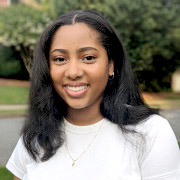 |
“Learning French has expanded my knowledge of different cultures and allowed me to travel in a way that is possible only by knowing the language." |
Asia Hypsher
Major: Chemical Engineering
Minor: French
Hometown: Marietta, GA
Vision: Manufacturing engineer at NIKE; Collaborating with people beyond the U.S.
What have you most enjoyed about studying French?
The introduction to French art and media is one of my favorite things about learning French. I remember watching Les Demoiselles de Rochefort in Prof. Perreau’s Queer France. It was such a fun film to watch in class.
An MIT education includes study in the technical, humanistic, and scientific fields. How do you think that range of knowledge will be valuable for your career — and life?
Learning French has expanded my knowledge of different cultures and allowed me to travel in a way that is possible only by knowing the language. This will continue to be invaluable as I encounter and work with people beyond the United States.
What are your plans for the future?
I will be working as a Manufacturing Engineer at NIKE.
 |
"Every instrument is designed by someone and works based on engineering and physics principles. At MIT, I learned how piano mechanisms work and how they are designed—which combines my passions of piano and mechanical design."
|
Melissa Klein
Majors: MechE + Music
Hometown: Gaithersburg, MD
Vision: Mechanical engineering at ASML; Continuing to compose, play, and enjoy music for life
What have you most enjoyed about studying music?
I really enjoyed studying music at MIT because it broadened my knowledge of music. Coming in with a classical background, I was able to learn about many other styles of music, such as jazz music and Senegalese drumming. My favorite experiences, though, have been performing with Margaret Zhang and Cathy Choi in a piano trio.
How does the knowledge from this field combine with your other studies at MIT?
Every instrument is designed by someone and works based on engineering and physics principles. At MIT, I learned how piano mechanisms work and how they are designed — which combines my passions of piano and mechanical design.
An MIT education includes study in the technical, humanistic, and scientific fields. How do you think that range of knowledge will be valuable for your career — and life?
Having a wide range of perspectives will help me think more critically on the job and about our society in general.
What are your plans for the future?
I will be working as a mechanical design engineer at ASML and continuing to play and compose music!
 |
"My double major in Architecture and Theater Arts at MIT grounded my design practice in a transmedia discipline that exists within in the realms of architecture, theater, urbanism, and art. The most exciting blending of these fields was how they hybridized my personal lexicon." |
Daniel K. Landez
Majors: Architecture + Theater Arts
Hometown: San Antonio, TX
Vision: M.Arch at Princeton
What have you most enjoyed about studying theater arts?
In studying theater and performance, I have been afforded the opportunity to critically analyze "real-world” events as embodied practices. Specifically, this past year I was able to research Pan-Mesoamerican performance practices as they related to pre-conquest, conquest, and contemporary power structures which helped me begin to understand my own relationship to socio-economic visual culture. Being given the opportunity and tools to intensively investigate experience and theory through the critical lens of performance has afforded me an invaluable understanding of self.
How does the knowledge from theater combine with your other studies at MIT?
At MIT, my double major in Architecture and Theater Arts grounded my design practice in a transmedia discipline that exists within in the realms of architecture, theater, urbanism, and art. While there were apparent physical manifestations from this crossing of mediums, I found that the most exciting blending of these fields was how they hybridized my personal lexicon. In considering “program” as “choreography” or the “performance” of a building facade as the “performance” of an embodied practice, I have been able to challenge the way I speak and think about spatial design.
An MIT education includes study in the technical, humanistic, and scientific fields. How do you think that range of knowledge will be valuable for your career — and life?
In order to be a proficient architect, it will be necessary to have a well-developed understanding of each of the aforementioned fields. Already, I have been able to see the benefits of MIT’s expansive core curriculum in the myriad work opportunities I have been able to pursue during my undergraduate education. Every day offers a wide variety of design problems that I get to solve and I hope that this pattern continues into an exciting and dynamic career.
What are your plans for the future?
I will be pursuing a Master of Architecture at Princeton School of Architecture.
Top
 |
“Going through the MIT Music minor program has made me a better musician, and I’ll enjoy that for life." |
Dongjoon Lee
Majors: Aerospace Engineering + EECS
Minor: Music
Hometown: Cypress, CA
Vision: Graduate studies at MIT in Aero-Astro; More time for arranging and composing music!
What have you most enjoyed about studying music?
I’ve developed a deeper appreciation of music after studying theory, composition, and performance at a level that I didn’t have access to before coming to MIT. I feel like I can better understand and appreciate various genres of music, and I want to spend more time in the future, arranging and composing music.
How does the knowledge from this field combine with your other studies at MIT?
I took classes that combined CS with music in which I built a python game to conduct a jazz band with your hands using a leap controller, and I am currently learning about various methods of signal processing used for music analysis through a class that combines signal processing with music.
An MIT education includes study in the technical, humanistic, and scientific fields. How do you think that range of knowledge will be valuable for your career — and life?
Going through the MIT Music Minor program has made me a better musician, and I’ll enjoy that for life.
What are your plans for the future?
I will be staying at MIT as a graduate student in the AeroAstro department.
 |
"I’ve always been really interested in language as a reflection of the culture that it comes from. As a pre-medical student, I’m acutely aware of the ways different cultures perceive and interact with the medical practice." |
Joanna Lin
Majors: Biology + French
Hometown: Sunnyvale, CA
Vision: A year teaching in France; Medical school in 2022; Working with Médecins Sans Frontières
What have you most enjoyed about studying French?
My favorite part of studying French was being able to explore a lot of different fields in the humanities, through the lens of the French language. For me, this took the form of a deep dive into my interest in film and literature, from a class on bandes dessinées to a survey of Honoré de Balzac’s short stories. I also took a few French-related history classes, which were my first experiences thinking and writing deeply about history.
This semester, I’ve really enjoyed 21G.054 (Enlightenment and the Revolution), where we’ve looked at the French Revolution through the lenses of slavery and crowd/mob psychology. There are definitely a lot of great HASS classes at MIT, but I don’t feel like I missed out on anything I wanted to study while I was taking French because I was able to customize my classes to my interests.
How does the knowledge from French studies combine with your other major or minor studies at MIT?
I’ve always been really interested in language as a reflection of the culture that it comes from. As a pre-medical student, I’m acutely aware of the ways different cultures perceive and interact with the medical practice. One of my long-time goals is to work with Médecins Sans Frontières (Doctors Without Borders), and my training in not only the French language but also the different cultures of the francophone world will be integral to my pursuit of that goal.
An MIT education includes study in the technical, humanistic, and scientific fields. How do you think that range of knowledge will be valuable for your career — and life?
I’m so grateful that MIT fosters an environment for students to learn such a wide range of perspectives. I definitely believe that empathy is like a muscle that needs to be practiced, whether it’s to someone on the other side of an argument, someone from a drastically different background, or someone from a time long past. I remember reading a book about the experience of the soldiers who carried out mass massacres of Jewish prisoners in 21G.356 (The Making of Modern Europe) and sitting with the realization that good people can be coerced, guilted, or manipulated into doing horrendous things. Consciously changing some deeply ingrained gut reactions has made me more understanding of others, and I’m sure that will be an invaluable asset in the future.
What are your plans for the future?
My immediate next step is to go to France the next academic year to be a teaching assistant in English for middle school students. During this gap year I will be in the midst of applications to medical schools, and I hope to matriculate in the summer of 2022. I’m very excited to fully immerse myself in the language I’ve been studying for so long!
 |
"Economics integrated some of my favorite parts of math with problems that have impacts on people and communities. I was able to apply concepts from real analysis and calculus to issues and topics I care about deeply, like education and environmental policy." |
Amber Lu
Majors: Economics + Math
Hometown: Sugar Land, TX
Vision: Harvard Law School, possibly a JD/MBA; Finding solutions drawing from both public and private sectors
What have you most enjoyed about studying economics?
I've really enjoyed the wide exposure to different topics and methodologies within economics. Through my classes, I've learned a lot about micro and macroeconomics, theoretical and empirical methods and research, rational and irrational behavior and decision making, market design, and policy implications from economic analysis. In my more theoretical classes, we focused deeply on the math behind various models for different phenomena, and then through more empirical classes like econometrics, we were able to see how that theory is then tested with statistical tools. With this foundation, it was fantastic to be able to apply these tools to our own research questions and projects in 14.33: Research and Communication in Economics.
How does the knowledge from this field combine with your other major or minor studies at MIT
Growing up, I loved math for the fun, interesting problems and stimulating process of coming to a solution, but sometimes it felt a few degrees removed from the immediate tangible impact on people and on society. What I find really special about economics is the interdisciplinary aspect of it — I found that economics integrated some of my favorite parts of mathematics and critical thinking with problems that have both macro and micro impacts on people and communities. I was able to apply concepts and frameworks from real analysis and calculus to issues and topics I care about deeply — like education and environmental policy.
An MIT education includes study in the technical, humanistic, and scientific fields. How do you think that range of knowledge will be valuable for your career — and life?
I've always been someone who's enjoyed both the sciences and humanities and aspired to work in the intersection of the two. I came from a predominantly STEM background, with parents and grandparents as software engineers and math professors, and getting an economics education has really given me a lot more perspective and direction on how to use the tools and knowledge from my math education. I'm personally really interested in pursuing policy and public service in the future, and taking classes like 14.13: Economics and Psychology and 14.41: Public Finance and Public Policy has been extraordinarily interesting and helpful in connecting some of the more abstract aspects of economics with practical policy application.
What are your plans for the future?
I plan to work as a private equity analyst in Blackstone's Tactical Opportunities team immediately after graduation, but I will be attending Harvard Law School after working a few years through their deferral program. I'm interested in joint solutions that draw on both the public and private sectors, so I am also considering going to business school and pursuing a JD/MBA. I also want to audition for Survivor!
 |
"I have always valued having a breadth of knowledge... and knowing math, economics, and physics is a great way to understand a lot of the universe." |
Faraz Masroor
Majors: Economics + CS with Math
Minor: Physics
Hometown: Miami, FL
Vision: Federal Reserve Bank; Then grad school in economics, law school, or a career in government (elected or otherwise)
What have you most enjoyed about studying economics?
I loved learning about political issues like the minimum wage or health insurance and how economists have done empirical work to understand these issues. Shoutout to 14.41, 14.03, and 14.05!
How does the knowledge from economics combine with your other major or minor studies at MIT
Having a math background has shown itself in my economics training in that in order to understand a phenomenon, we should seek to find the simplest and most stylized model that explains the phenomenon. By stripping models down to their core parts we can better understand its implications and find what does — and what does not — matter for explaining phenomena like unemployment or bank runs. If we're lucky, we can find closed form solutions for simple economic models.
An MIT education includes study in the technical, humanistic, and scientific fields. How do you think that range of knowledge will be valuable for your career — and life?
I have always valued having a breadth of knowledge in different fields and exposing myself to as much different knowledge as I can. Knowing math, economics, and physics is a great way to understand a lot of the universe — like, "What are interest rates?" and "What are black holes?" I take pride in knowing enough about something that I could explain it to others, and having a breadth of knowledge goes well with that ideal.
What are your plans for the future?
I plan to work at the Federal Reserve Bank of New York. Perhaps I will pursue graduate school in economics, law school, or a career in government (elected or otherwise).
 |
“I think that having this wider range of knowledge and perspectives has made me a more empathetic person because I can better relate with peers of more diverse backgrounds." |
Gabriel Mintzer
Majors: CS + Physics
Minor: Chinese
Hometown: West Des Moines, IA
Vision: PhD in physics; Chinese studies throughout the coming years
What have you most enjoyed about studying Chinese?
I have most enjoyed learning about the similarities and differences between Chinese culture and western culture and being able to explore these contrasts from a variety of perspectives. For example, I had the chance to explore Chinese internet culture by investigating modern online slang in Chinese VI with Chen Laoshi, by studying internet parodies of film media in Modern Chinese Fiction and Cinema with Prof. Jing Wang, and by researching mobile social networking in Introduction to East Asian Culture: From Zen to K-pop with Prof. Emma Teng.
How does the knowledge from this field combine with your other studies at MIT?
The knowledge from studying Chinese language and culture has already allowed me to travel abroad to Taiwan and Hong Kong to teach summer courses in physics and computer science with MIT CETI. Moreover, I have found opportunities to weave my interest in Chinese language and culture into other projects; for example, I recently worked with a small team to develop a model for translating Ancient Chinese into Modern Chinese, an idea that stemmed from a desire to better understand Ancient Chinese poetry and other texts.
An MIT education includes study in the scientific, technical, social science, arts, and humanities fields. How do you think that wide range of knowledge and perspectives will be valuable to you?
I think that having this wider range of knowledge and perspectives has already made me a more empathetic person because I can better relate with peers of more diverse backgrounds. In addition, I have enjoyed using my knowledge of Chinese language and culture to read, eat, and travel as I engage with Chinese history and culture directly. At the very least, I am glad that I can now better appreciate Chinese classics and poetry, as well as C-pop, C-dramas, and donghua!
What are your plans for the future?
I am currently pursuing an MEng in EECS at MIT, and I plan on applying to Ph.D. programs in physics in the fall. I also look forward to continuing my Chinese studies independently and in classes throughout the coming years!
 |
"Since I'm going into nuclear policy, my work will directly involve analyzing issues from both a STEM and humanities lens, so being well-versed in both will be immensely useful." |
Natalie Montoya
Major: Nuclear Engineering (focus: Policy & Security
Minors: Energy Studies + Japanese
Hometown: Rapid City, SD
Vision: Fellow at the Carnegie Endowment for International Peace; Followed by grad school and a career in nuclear policy
What have you most enjoyed about studying Japanese?
It's been fascinating to learn how Japanese differs from English; beyond characters, the grammatical structures, conjugation, syntax, and more are vastly different. Although I'm still learning, my ability to understand Japanese media has improved, which is useful for keeping up with the news and sports since I'm a fan of figure skating, which is popular in Japan. In that vein, it has also given me an increased appreciation for translators.
How does the knowledge from this field combine with your other major or minor studies at MIT?
I originally took Japanese classes because I was planning to spend a semester studying at Tokyo Tech. Although I was unable to do so because of the pandemic, I could combine Japanese with Energy Studies on projects analyzing Japan's electrical generation.
An MIT education includes study in the technical, humanistic, and scientific fields. How do you think that range of knowledge will be valuable for your career — and life?
Since I'm going into nuclear policy, my work will directly involve analyzing issues from both a STEM and humanities lens, so being well-versed in both will be immensely useful. Having studied another language and culture will also help me be more open to viewing topics from different perspectives — a valuable skill in both career and life.
What are your plans for the future?
Next year, I'll be working as a James C. Gaither Junior Fellow at the Carnegie Endowment for International Peace in the Nuclear Policy Program. I'm not yet sure what I'll be doing immediately after my fellowship, but I do plan to go to grad school at some point.
 |
“My study of Spanish allowed me to work on projects in South America that broadened my perspective of the scale of certain scientific and health crises.”
|
Zaina Moussa
Major: BioEngineering
Minor: Japanese
Hometown Lubbock, TX
Vision: MD/PhD in Biological Engineering; Incorporating humanistic perspectives into my research
What have you most enjoyed about studying Japanese?
I have most enjoyed the fun intensity of the Japanese classes! From day 1 we stopped speaking English after learning the commands for "read" "write" and "repeat" and how to ask questions. This was so valuable in actively immersing us in an environment where we were forced to rapidly retain information to keep up.
How does the knowledge from this field combine with your other major or minor studies at MIT?
I have always been very interested in languages and how language influences culture and vice versa. Learning Japanese has given me a clevel of understanding about another culture that I didn't have before.
An MIT education includes study in the technical, humanistic, and scientific fields. How do you think that range of knowledge will be valuable for your career — and life?
I am pursuing a dual MD/PhD degree. I think the way that people approach learning a language is so applicable to learning anything. You have to be ready to fail and try again, and not let your temporary embarrassment at failing get int the way of you getting more comfortable with the material. I also just think a humanities education coupled with a scientific one is so valuable in reincorporating the humanistic perspective into science and research that is often lacking.
What are your plans for the future?
I will be pursuing a dual MD/PhD degree through the UCSF/UC Berkeley joint Biological Engineering program.
 |
“I hope to become a physician and I think that being multilingual will be a huge asset for me in the future.” |
Siam Muquit
Major: Chemical Biology
Minor: Spanish
Hometown: Dhaka, Bangladesh
Vision: Medical school at Johns Hopkins; Addressing the needs of marginalized communities in urban settings
What have you most enjoyed about studying Spanish?
What I've most enjoyed about studying Spanish is learning about the history, culture, literature, arts, and especially tasting the food of Spanish-speaking countries.
How does the knowledge from studying Spanish combine with your other major or minor studies at MIT
For my junior year summer, I was able to connect with an oncology research hospital in Mexico for an internship which would require me to speak Spanish as well as bring my biochemistry background. It didn't happen due to COVID, but I very much appreciate that these sorts of opportunities and intersections are open to me now.
An MIT education includes study in the technical, humanistic, and scientific fields. How do you think that range of knowledge will be valuable for your career — and life?
I hope to become a physician in the future, and I think that being multilingual will be a huge asset for me in the future. I hope to be a doctor that addresses the needs of marginalized communities in urban settings, which unfortunately often includes Hispanic populations. In medical school, I will pursue further training in medical Spanish and one day build a strong trust and relationship with my patients.
What are your plans for the future?
I'm off to Baltimore to attend medical school at Johns Hopkins.
 |
“Language studies have helped me improve my communication skills and cultural knowledge — both valuable skills for academic research, which is highly collaborative and very international." |
Anjali Nambrath
Majors: Math + Physics
Minor: French
Hometown: Marlboro, NJ
Vision: Physics research in India as a Fulbright Fellow; PhD in physics at UC Berkeley
Also see: Feature Story by SHASS Communications
What have you most enjoyed about studying French?
I have enjoyed learning more about the French language and Francophone cultures over the past four years. My minor ended up being an opportunity to dip into literature, history, sociology, art, and various other HASS fields. It's been wonderful to have exposure to interesting material in all of these areas while deepening my language skills. I also had the chance to visit Paris for an unforgettable two weeks through the 2020 January Scholars in France program.
How does the knowledge from studying French combine with your other major or minor studies at MIT?
Language studies have undoubtedly helped me improve my communication skills and cultural knowledge — both valuable skills for academic research, which is highly collaborative and very international. My French classes have also pushed me to examine issues from new angles and ask interesting questions about seemingly familiar topics. This kind of critical thinking is crucial for physics, where asking smart questions and trying new approaches can yield fascinating insights into the workings of our universe.
An MIT education includes study in the technical, humanistic, and scientific fields. How do you think that range of knowledge will be valuable for your career — and life?
These past four years have given me an appreciation for film, theater, and literature, as well as a real curiosity about cultures and ways of life that are different from my own. I also discovered my passion for translation after working with Professors Claire Conceison and Catherine Clark to translate an entire play into English. I have to thank the amazing professors and classmates I've met through my HASS studies for furthering my interests in these areas; my MIT experience has been much richer as a result.
What are your plans for the future?
In the fall, I will be traveling to India on the Fulbright to conduct physics research for 9 months in Mumbai (hopefully – this is contingent on the COVID situation there). In the fall of 2022, I'll be starting my PhD in physics at UC Berkeley.
 |
“I envision working with underserved communities both in the U.S. and Nigeria. Understanding the ways in which certain people and places are marginalized or disadvantaged is critical to what I want to do."
|
Andrea Odinakachukwu Orji
Major: Chemical-Biomedical Engineering
Minor: African and African Diaspora Studies
Hometown: Pflugerville, TX
Vision: Medical school; increase the accessibility of global health resources
What have you most enjoyed about studying African and African Diaspora Studies?
There are honestly too many classes where I felt I learned new ways of considering both my personal experiences and issues in the broader world in ways I never had before. From sophomore year Engineering Democratic Development in Africa with Professor Lieberman introduced me to new ways of considering how to hold governing bodies accountable to the needs of their constituents, and how to use political data in effective ways.
The following year Professor DeGraff taught me the numerous and insidious ways that language shapes the way we view the world as well as the way the world perceives us in Creole Languages and Caribbean Identities. Finally, Africa and the Politics of knowledge with Professor Edoh made me think much more critically about the ways that the continent is constructed as a concept on a global scale, and how that affects the work that can be done within and around African countries.
How does the knowledge from this field combine with your other major or minor studies at MIT?
This minor is deeply intertwined with my interests in affordable, accessible medical technology in low-resource settings. I envision myself working with underserved communities both in the U.S. and Nigeria, and understanding the ways in which certain people and places are marginalized or disadvantaged is critical to what I want to do.
An MIT education includes study in the technical, humanistic, and scientific fields. How do you think that range of knowledge will be valuable for your career — and life?
Solutions to problems in our world can come through so many avenues, frameworks of thought and discourses! Being engaged in an issue from multiple angles allows me to have a greater awareness of the ways systems and people interact. It also keeps me engaged when the engineering side of my coursework starts to exhaust me or vice versa.
What are your plans for the future?
I will be attending medical school at the University of Michigan and pursuing a dual MD/MPH or MSE degree. I intend to use my time in school and after to join in efforts to increase the accessibility of global health resources.
 |
"In engineering, we often try to isolate an issue's scientific components and assume that we are objective problem-solvers. WGS has helped me to remember that every problem we see has a history and societal implications that need to be considered." |
Abena Peasah
Major: BioEngineering
Minor: Women’s & Gender Studies
Hometown: Lawrence, Kansas
Vision: PhD in Bioengineering at Stanford; Advocate for marginalized communities
What have you most enjoyed about studying Women's & Gender Studies?
I’ve loved learning about everything that WGS has to offer. I’ve been able to take so many cross-listed classes that examine the position of gender in history, anthropology, and public health. For example, I took WGS.172 (For Love and Money: Rethinking the Family) in the spring of my junior year. I really enjoyed thinking about the differences between the concept of family and household, and how different societies meld or separate them.
How does the knowledge from this field combine with your other major or minor studies at MIT?
I think that my classes in Women’s and Gender Studies have helped me to approach problems in bioengineering in different ways. In engineering, we often try to isolate an issue's ‘scientific’ components and assume that we are objective problem-solvers. WGS has helped me to remember that every problem we see has a history and societal implications that need to be considered. For example, in MLK Visiting Prof. Moya Bailey’s course WGS.S10 (Black Feminist Health Science Studies, we discussed how we need to rethink science and how we use it identify problems.
An MIT education includes study in the technical, humanistic, and scientific fields. How do you think that range of knowledge will be valuable for your career — and life?
One thing I really appreciated about MIT’s HASS requirement is how it teaches students to communicate and widen our focus. I’ve always really enjoyed the humanities, and I will definitely continue to focus on the non-STEM aspects of my life after MIT as well. I think that my experiences in WGS classes will help me to communicate my ideas to many different audiences, and to think about how I can advocate for marginalized communities in my career and life.
What are your plans for the future?
I will be pursuing a PhD in Bioengineering at Stanford in the fall.
 |
"Singing at MIT has taught me a lot about collaboration, whether it's with the pianist, conductor, or rest of the choir. Math and finance also emphasize that working in diverse teams gives your end product an advantage." |
Tommie M. Reerink
Majors: Math + Music
Hometown: Holmdel, NJ
Vision: research analyst at Goldman Sachs; visiting the Met Opera often!
What have you most enjoyed about studying Music?
My favorite class has been vocal repertoire and performance (21M.410) because I love seeing the evolution of song and performance practice across different countries and eras. It's also very fun to learn from other students so that we all become better performers!
How does the knowledge from music combine with your other studies at MIT?
Singing at MIT has taught me a lot about collaboration, whether it's with the pianist, conductor, or rest of the choir. Math and finance also emphasize that working in diverse teams gives your end product an advantage.
An MIT education includes study in the technical, humanistic, and scientific fields. How do you think that range of knowledge will be valuable for your career — and life?
I think having a wide range of knowledge is important because it gives you the opportunity to work a problem from multiple angles. I believe a multifaceted approach to problems, whether they are career or life related, produces most optimal solutions and informed decisions.
What are your plans for the future?
I will be working at Goldman Sachs in New York City as a research analyst. I hope to visit the Met Opera often!
 |
"Musicology classes have broadened how I think about culture, social issues, and my place in this world. The MIT Music professors pushed me to think critically not just about the 'what' of the music we've studied but the 'why' and 'who.' These are skills that I wish were emphasized more in my technical classes, and I'm really grateful for the MIT music program." |
Tony Terrasa
Majors: MechEng + Music (studying jazz in the MIT's conservatory-level music track)
Hometown: Columbia, MD
Vision: Fulbright Fellow for a year, teaching English, math, and music in Spain
What have you most enjoyed about studying music?
Definitely my favorite thing about studying music —and maybe my favorite thing about all of MIT — has been playing in ensembles with amazing people! My ensembles have been such welcoming communities for the last 4 years. Perhaps my favorite memory was going with the Festival Jazz Ensemble (FJE) to Puerto Rico during sophomore year. We got to do community education events and play several concerts throughout the island with the great Miguel Zenón! I got very close with the group and learned a lot about myself on that trip.
How does the knowledge from this field combine with your other studies at MIT?
For a long time, I thought about combining my technical skills with my musical ones. For right now, I'm enjoying keeping them separate. Music is often a place a turn to for that infusion of energy when I'm feeling a little burnt. I will say some of the skills I've learned from music have fundamentally shifted the way I approach problems. Learning a scale is kinda like solving a coding or math problem. Start with the basics. Break it into chunks. And go slowly until you get it.
An MIT education includes study in the technical, humanistic, and scientific fields. How do you think that range of knowledge will be valuable for your career — and life?
Musicology classes have broadened how I think about culture, social issues, and my place in this world. The MIT Music professors have always pushed me to think critically not just about the "what" of the music we've studied but the "why" and "who" (big s/o to profs Pollock, Dempsey, Neff, and Tilley!). These are skills that I wish were emphasized more in my technical classes, and I'm really grateful for the music classes at MIT.
What are your plans for the future?
For the year after graduation, I'll be a Fulbright English Teaching Assistant in Galicia, Spain. I'll be teaching English and potentially some other subjects like math and music to local middle-school and high-school students.
 |
“I’ve taken two languages at MIT, and both the Spanish and Chinese classes challenge the mainstream American view of Latin America and China. I can’t imagine completing either of these classes without gaining a better understanding of and empathy for other people." |
Sarah T. Vu
Major: EECS
Minor: Chinese
Hometown: Houston, TX
Vision: Microsoft; then EdTech and teaching K-12
What have you most enjoyed about studying Chinese?
I love Chinese idioms because by learning them, you learn a little about Chinese culture and history and you get to sound more fluent! Most of them consist of four characters so Chinese idioms are often called four-character idioms. One of the last ones I learned this semester is 独占鳌头 (dú zhàn áo tóu), which refers to the carved stone turtle in front of the imperial palace, but it means to be the champion or the best in a field. This is because the most successful candidate in the imperial examinations was entitled to stand next to this turtle.
Another thing I love about studying Mandarin is that it’s a tonal language. There’s so much more room for puns and jokes! “Grass-Mud Horse” in Mandarin is just a few tones off from a very vulgar insult. However, this also makes learning the language a lot harder because you could very easily say the wrong word in a sentence if you do not focus.
How does the knowledge from studying Chinese combine with your other major or minor studies at MIT?
I didn’t take Chinese because of my main field of study – I just like learning about other languages and culture. However, it could definitely be helpful for my work as a software engineer because computer science research and innovation in China is top tier, and I would definitely be interested in working in places like Shenzhen.
An MIT education includes study in the technical, humanistic, and scientific fields. How do you think that range of knowledge will be valuable for your career — and life?
Many people think of the STEM fields as unbiased and detached, but that is dangerous because the innovations we create do not exist in a vacuum, and the biases that scientists and engineers bring into their work have far-reaching impacts. The SHASS classes I’ve taken at MIT — from women's and gender studies, to ethics, to foreign cultures — have all given me more critical thinking skills, including about technology and industry leaders. I hope all MIT students get to experience this “pulling back of the curtain” before they contribute to something they regret. We do not take oaths like doctors to “do no harm”, but we should all do our best to follow this guideline anyway.
In terms of enjoyment for life, being able to converse with another person in their native language and to enjoy their food and culture is just euphoric. The world is so big and wide and beautiful, and I want to enjoy it in as many points of view as possible. Studying other cultures and languages also makes your life better by combatting hate. I’ve taken two languages at MIT, and both Spanish and Chinese classes here challenge the mainstream American view of Latin America and China. I can’t imagine completing either of these classes without gaining a better understanding of and empathy for other people.
What are your plans for the future?
I will be working on the Azure App Services team at Microsoft for the foreseeable future; later I hope to work in EdTech and eventually teach in K-12.
 |
"Music brings me joy, and I wouldn't be complete without it. Quoting Plato, "Music gives a soul to the universe, wings to the mind, flight to the imagination, and life to everything."" |
Julia Wang
Majors: Computer Science + Mathematics
Minor: Music
Hometown: Cary, North Carolina
Vision: Software engineer; Continuing singing and music, which is essential to my happiness and balance
What have you most enjoyed about studying Music?
I love studying music with amazing and passionate professors and my choir director, Bill Cutter. My sight-singing skills improved tremendously over the course of three semesters with the Chamber Chorus and one semester with Concert Choir. I learned a lot about world music from two classes taught by Professor Patty Tang, which expanded my cultural knowledge and understanding.
Additionally, I enjoyed learning music theory and composing my own music under the guidance of Professors Peter Child and Nathan Lam. In piano lab with Jinny Park, I learned how to play the accompaniment for "Burn" from Hamilton while singing along. Thank you so much to all of my fantastic instructors!
How does the knowledge from this field combine with your other major or minor studies at MIT?
I took 21M.385/6.809 Interactive Music Systems with Professor Eran Egozy and loved the interdisciplinary material! We programmed video games and audio mixers in Python, so I had many opportunities to be creative while honing my computer science skills. For my final project, I collaborated with two partners on a music mashup mixer, and the other students in the class created clever video games and music synthesis programs!
An MIT education includes study in the technical, humanistic, and scientific fields. How do you think that range of knowledge will be valuable for your career — and life?
The wide range of knowledge and perspectives between the Arts and STEM fields enriches my education by providing a balance between creativity and analytical skills. During my career, I will definitely continue singing and listening to the music I learned about at MIT. Music brings me joy, and I wouldn't be complete without it. Quoting Plato, "Music gives a soul to the universe, wings to the mind, flight to the imagination, and life to everything." Music is essential to my happiness and balance in life!
What are your plans for the future?
I am planning to intern as a software development engineer at Amazon this summer and Facebook in the fall. In Spring 2022, I will return for a Masters in Engineering program in computer science. After that, I will likely pursue a full-time career in software engineering.
 |
"Many of my favorite MIT classes have been human-centered social science classes that reveal how humans think, make decisions, and form communities. Combined with my biology major, I've loved learning what makes people function from a molecular to a population level, and I think that across all disciplines, work should be conducted with the people who will be affected by its end product at front of mind." |
Kevin Wesel
Major: Biology
Minors: Economics + Public Policy
Hometown: Los Angeles, CA
Vision: McKinsey & Co, focus on healthcare, pharmaceutical, and public sector industries; Then business or medical school
What have you most enjoyed about studying Economics and Public Policy?
I loved learning about randomized control trials and causal inference in my economics classes. In class discussions and everyday conversations, people often point out that a correlation between two variables doesn’t indicate that one variable causes the other. Economics shows how to construct experiments that will rigorously show the effects of a policy while taking into account the complicated context and subtleties of human society. One of my favorite classes at MIT was 14.13 Psychology and Economics with Professor Schilbach — I loved discussing phenomena such as present bias and projection bias (both describing how your current state of mind is prioritized over your future self when making decisions), and I often notice myself falling victim to the tendencies we discussed in my everyday life.
From my public policy classes, I greatly enjoyed 17.317 U.S. Social Policy with Professor Campbell. Learning about the complex network of United States programs and subsidies that often prioritize the wealthy over the disadvantaged ignited my passion for designing and implementing policies that serve people who will most benefit from the assistance. The summer after I took U.S. Social Policy, I worked on US drug regulatory approval at the FDA with Booz Allen Hamilton and cherished the opportunity to design drug policy with patients and their diverse medical insurance circumstances in mind.
How does the knowledge from these fields combine with your other major or minor studies at MIT?
My dual minors in economics and public policy complement each other perfectly. My economics classes have described how to identify human behavioral patterns and analyze them in a robust manner, and my policy studies have answered the “so what?” of economic results, turning insight about how people act into governmental action that improves lives.
An MIT education includes study in the technical, humanistic, and scientific fields. How do you think that range of knowledge will be valuable for your career — and life?
Many of my favorite classes at MIT have been my human-centered social science classes that reveal how humans think, make decisions, and form communities, from psychology to economics to anthropology. Combined with my biology major, I’ve loved learning what makes people function from a molecular to a population level, and I think that across disciplines, work should be conducted with the people that will be affected by its end product at front of mind. I’ve also loved hearing new perspectives and meeting the people holding them in experiences far from social science and biology, including a climactic IAP trip to Madrid to study Spanish literature (21L.590). Lastly, my roommate and I always say that variety is the spice of life.
What are your plans for the future?
I’ll be moving to New York this fall to work at McKinsey & Company with planned focuses on the healthcare, pharmaceutical, and public sector industries. I plan to head to either business school or medical school after a couple years of work.
 |
"I view literature has a way to look through someone else’s eyes about the world around them (it comes out in Fantasy and Sci-Fi too) and these biases are only able to be formed from lived experiences frequently influenced by law, social policy, and society at large." |
Anna Williams
Major: Literature
Minor: Public Policy
Hometown: New Bern, NC
Vision: Law school and practice as a Family/Juvenile, Criminal Defense, or Civil Right Attorney
What have you most enjoyed about studying Literature?
In all honesty I can say the people was my favorite part about studying in the Literature Section. Personally coming into MIT from a small town was overwhelming and it was hard to catch my bearing sometimes even as I made friends. However, Literature has consistently been amazing in terms of people—both students and faculty. Events like Lit Tea meant I could talk to others who loves the HASS field (being around STEM people all the time can be exhausting) and the faculty even let me just hang out on the literature floor every week. I could just hang out and talk or work on classwork or sometimes help out with prep work for future events. I know my answer isn’t specifically about the classes but what good are classes if the people aren’t good too? Though, if you make me choose my favorite thing about the classes it would be the diversity in reading. Finally it wasn’t being drilled into my skull that the only ‘great works’ were written by old white men — which is nice to read as a WOC.
How does the knowledge from this field combine with your other major or minor studies at MIT?
I am a rare specimen at MIT and I exclusively (minus GIRs) studied the humanities. I believe having literature as my base though allowed a lot more insight into some of my other classes on public policy, law, and history. I view literature has a way to look through someone else’s eyes about the world around them (it comes out in fantasy and sci-fi too) and these biases are only able to be formed from lived experiences frequently influenced by law, social policy, and society at large. So, essentially, my work in Literature allowed a bit more of a nuanced human approach to some topics (i.e. race relations, LGBTQ+ rights, etc) that are brought up in other humanities fields. I think it is easy to bog oneself down in just the issue at hand, but literature forces someone to remember everything going on around as well.
An MIT education includes study in the technical, humanistic, and scientific fields. How do you think that range of knowledge will be valuable for your career — and life?
Honestly, it will be most helpful in even understanding half the things I will encounter in my future career. As an attorney I’ll be forced to reckon with various types of evidence and knowledge — not all of which I will be able to understand — but MIT’s requirement on breadth will allow me to have a basic understanding of quite a few things. Understanding something definitely creates a better argument in my opinion.
What are your plans for the future?
Currently I am just working part time jobs as I study for the LSAT in October. Hopefully I will be able to get the score I want and attend a law school here in the Southeast USA. Afterwards I plan on working within this region as a Family/Juvenile, Criminal Defense, or Civil Right Attorney. Currently, I am heavily leaning towards a combination of Family/Juvenile and Domestic Violence though. Of course, these are simply plans. Who knows what’s in store for me?
 |
"I believe the holistic education that MIT provides will prove invaluable in my career. I hope to become a physician and will strive to provide culturally competent care to all my patients and to cultivate a sense of trust." |
Katie Williams
Major: BioEngineering
Minor: Women's & Gender Studies
Hometown: Omaha, NE
Vision: Medical school; Practice as a physician with a focus on women’s health
What have you most enjoyed about studying Women's & Gender Studies?
I love that WGS focuses not only on gender, but also its intersection with race, class, ability, and sexuality. I found the discussions on the social construction of racial categories in WGS.229 to be particularly powerful.
How does the knowledge from this field combine with your other major or minor studies at MIT?
As engineers, I think it’s always important to consider the greater context and implications of what we are engineering. Studying WGS has pushed me to think about what communities I am truly engineering for and who I might be missing due to the bias of my own identities and upbringing.
An MIT education includes study in the technical, humanistic, and scientific fields. How do you think that range of knowledge will be valuable for your career — and life?
I believe the holistic education that MIT provides will prove invaluable in my career. I hope to become a physician will strive to provide culturally competent care to all my patients and to cultivate a sense of trust. I want to be an advocate for my patients, and this can only be achieved if I am knowledgeable about communities other than my own.
What are your plans for the future?
I ultimately hope to attend medical school and become a physician. I not yet sure want I want to specialize in, but I know I want to focus on women’s health in my field of choice.
 |
"Studying a wide range of subjects at MIT — the humanities and arts, as well as the technical fields — helps me maintain a more nuanced perspective of the world. Not to mention that it makes me happy!" |
Madeline M. Wong
Majors: EECS + Music
Hometown: Basking Ridge, NJ
Vision: MEng at MIT; Combining my two fields of study in music technology
What have you most enjoyed about studying music?
I enjoyed the opportunity to broaden my understanding of music from a primarily Western classical background. As a 6-2 and 21M-1 double major, I particularly enjoyed the music technology classes like 21M.385 and 21M.387 because they gave me the chance to explore musical applications of computer science.
How does the knowledge from this field combine with your other studies at MIT?
My two fields of study come together in the field of music technology. I've been UROP-ing with Eran Egozy for the past academic year, so I've had the chance to learn a lot more about the current landscape of music technology research and application.
An MIT education includes study in the technical, humanistic, and scientific fields. How do you think that range of knowledge will be valuable for your career — and life?
Studying a wide range of subjects at MIT — the humanities and the arts as well as the technical fields — helps me to maintain a more nuanced perspective of the world, not to mention that it makes me happy.
What are your plans for the future?
I'm staying on at MIT for another year for my MEng in Computer Science.
 |
"Understanding STEM with a critical eye towards capitalism, colonialism, and the interlocking structures of oppression is necessary for the sustained and vibrant future of the many worlds that we all live in." |
Max Yu
Majors: CS + Math
Minor: Women's & Gender Studies
Hometown: Ridgefield, CT
Vision: Software engineer; Creative work as a comic artist/games enthusiast; possibly an MEng; and more WGS classes!
What have you most enjoyed about studying Women's and Gender Studies?
Studying WGS has exposed me to so many different fields — history, law and government, psychology, anthropology, literature and media studies... It is a broad discipline that attracts all kinds of people and creates all kinds of questions and products; near any concept can be taken and enriched through analysis with the lens of gender (and the many other social dimensions connected to it). These classes were often the highlights of my semester, and many ways of thinking that I've learned from them has stuck with me long beyond the end of the semesters.
How have you combined your interests in this field with your other major or minor studies at MIT?
The methods of thinking taught through my WGS classes have served me well as a scientist, but also as so many other things. It has greatly informed how I approach the ways that I relate to computer science, for instance; the technical culture of MIT often poses technical advancement as an inherent good, and it was WGS classes that taught me to think more critically about the tools and methods, and even paradigms of production and supply chains utilized in the computer industry. Understanding STEM with a critical eye towards capitalism, colonialism, and the many interlocking structures of oppression is something that I firmly believe is necessary for the sustained and vibrant future of the many worlds that we all live in.
An MIT education includes study in the technical, humanistic, and scientific fields. How do you think that range of knowledge will be valuable for your career — and life?
Being involved in WGS has absolutely made me a better scientist, and a better person generally — more importantly, it's taught me to look outside my personal horizons and the value of being immersed in the communities around me.
What are your plans for the future?
I am looking for a job as a software engineer now, but intend to continue doing creative work as a comic artist and games enthusiast. I may return to MIT for an MEng after a few semesters in industry, and I absolutely plan to take more WGS classes when I do.
 |
"Both Biological Engineering and Music
|
Margaret Y. Zhang
Major: BioEngineering
Minor: Music
Hometown: Orinda, California
Vision: Research at a gene editing company; composing and performing much more music!
What have you most enjoyed about studying Music?
By minoring in music, I have been able to more deeply think about music in a global context. I often reflect on the moments I had in Rhythms of the World where I learned how to fully embrace and internalize rhythms from regions such as South India, Ghana, and Bali. As my classmates and I practiced these rhythms together, I felt a sense of exhilaration as I stepped outside my comfort zone and began to embody music beyond the Western realm I was so used to as a classically trained musician.
How have you combined your interests in this field with your other major or minor studies at MIT?
I have always struggled to balance my love for music and my curiosity for science. Both Biological Engineering and Music at MIT have taught me crucial skills in team work, problem-solving, and communication. Beyond this, the communities I have found in these departments have been invaluable.
An MIT education includes study in the technical, humanistic, and scientific fields. How do you think that range of knowledge will be valuable for your career — and life?
The knowledge and perspectives I have gained through my MIT education will be a guide through all stages of my career and life. MIT has taught me how important it is to pursue your passions without fear of failure and to find mentors and a community that will never stop supporting these passions.
What are your plans for the future?
Next year I will be working on exciting research at a gene editing company in Cambridge. Outside of research, I plan on composing and performing much more music for my friends and family!
 |
"The technological advancements that Asian countries have made in the last few decades alone is just breathtaking! Seeing some of the novel ways they utilize computers and data serves as an inspiration to what I can do here in the US. It encourages me to dream big and to push past norms!" |
Alvin Zhu
Major: Computer Science, Economics, and Data Science
Minor: Asian and Asian Diaspora Studies
Hometown: New York City, NY
Vision: Working as a software engineer in New York.
What have you most enjoyed about studying Asian and Asian Diaspora Studies?
It is so important for me to connect to my roots as an Asian American. Before MIT, I never had the opportunity to formally learn an Asian language or to experience what Asia was really like. Everything I thought I knew came from social media or news sources that were almost always biased. I wanted to learn as much as possible about my history and then be able to draw opinions on my own.
My favorite experience at MIT is MISTI China’s CETI program. Through CETI, I was able to go to many different cities in China with two other MIT students. Along the way, I tasted so many delicious foods and met so many great people (some of whom I still keep in touch with!).
How have you combined your interests in this field with your other major or minor studies at MIT?
The technology in Asia is literally next level. The technological advancements that Asian countries have made in the last few decades alone is just breathtaking! Seeing some of the novel ways they utilize computers and data serves as an inspiration to what I can do here in the US. It encourages me to dream big and to push past norms!
An MIT education includes study in the technical, humanistic, and scientific fields. How do you think that range of knowledge will be valuable for your career — and life?
I honestly do not think I could have made it through MIT without my humanities classes. Not only did they encourage me to think in new ways, but they were literally a breath of fresh air amongst all my technical classes. They were no less challenging than any other class at MIT and yet they were still so much fun!
What are your plans for the future?
I will move back to New York City and work as a software engineer.
Suggested Links
Meet the MIT Bilinguals
Profiles of some of the many MIT students who focus on both humanistic and sci/tech fields at MIT, often earning dual degrees
On Technical + Humanistic competence
Interview with MIT Professor David Mindell: Historian, Engineer, Professor, Co-founder/CEO of Humatics Corporation: "Dual competence is a good model for undergraduates at MIT: master two fundamental ways of thinking about the world, one technical and one humanistic. Sometimes these two modes will be at odds with each other, which raises critical questions. Other times they will be synergistic and energizing."
And here's a special #MIT2021 treat for everyone who has arrived at this spot on the page!
Prepared by MIT SHASS Communications
Office of Dean Melissa Nobles
Editorial and Design Director: Emily Hiestand
Senior Writer: Kathryn O'Neill
Senior Communications Associate: Alison Lanier